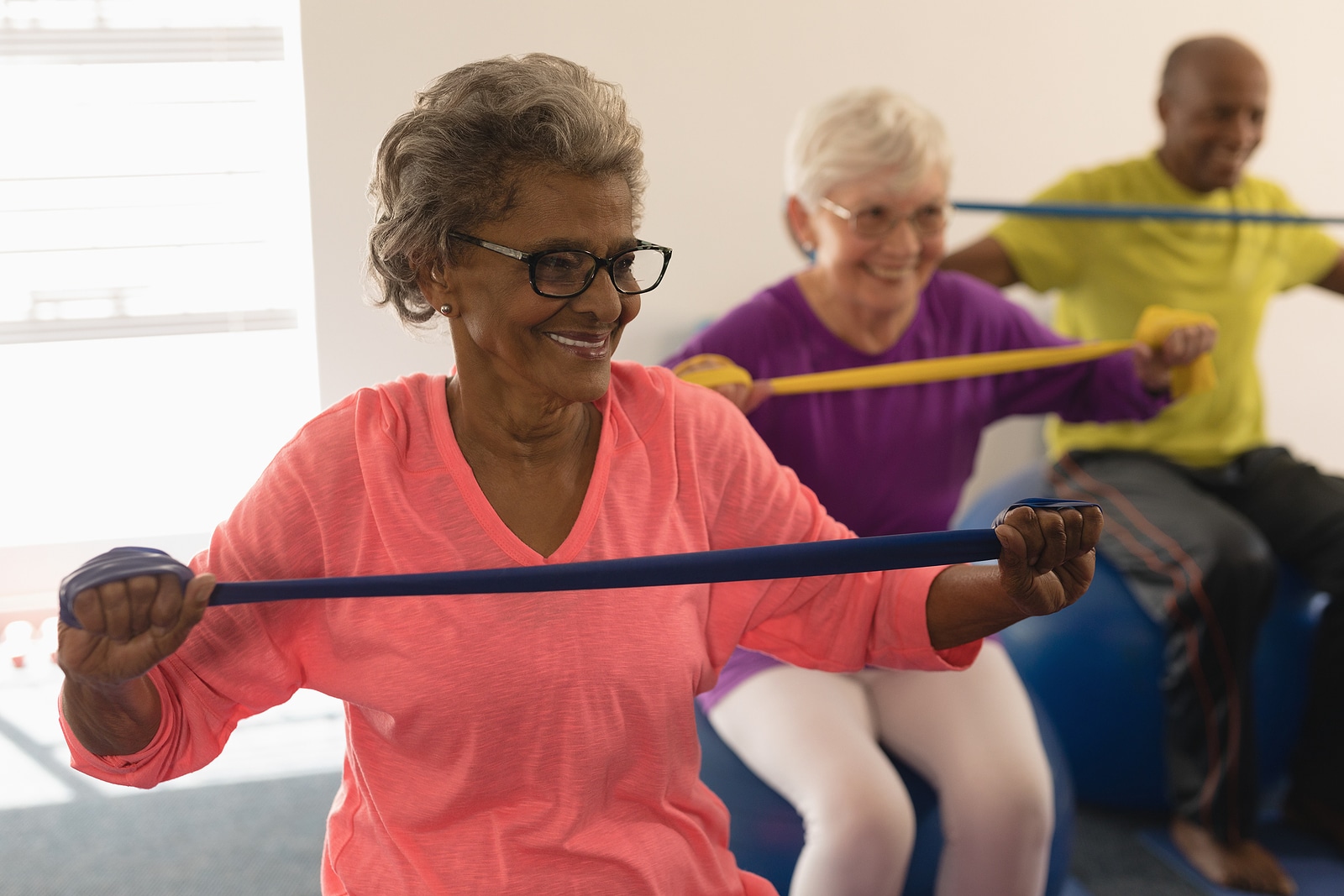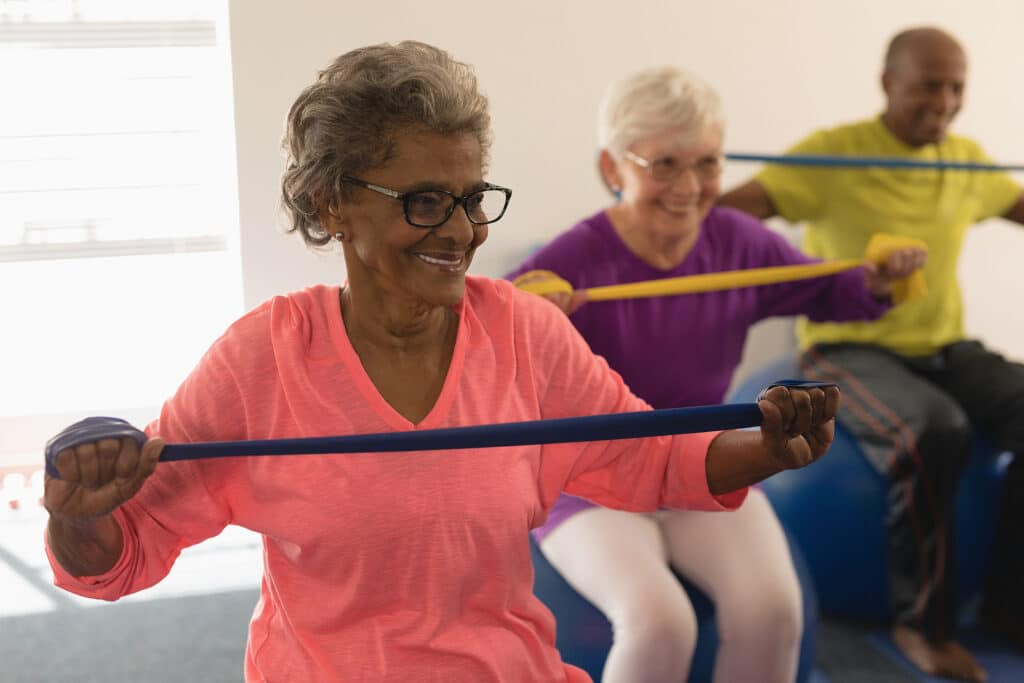
There isn’t any way to prevent Alzheimer’s disease yet, but seniors can still do something to reduce their risk and to promote brain health. By understanding potential risk factors, prioritizing a healthy lifestyle, and seeking early support from Alzheimer’s care professionals, seniors can take control of their cognitive health. There are other things they can do, too.
Understand Their Existing Risk Factors
Seniors should be aware of their existing risk factors for Alzheimer’s disease, such as age, family history, genetics, and even certain medical conditions. While some risk factors cannot be changed, understanding them can motivate seniors to take other preventative measures. Regular check-ups with healthcare providers can help identify potential risk factors and allow for early intervention or monitoring.
Keep Their Brains Sharp
Engaging in mentally stimulating activities is another tactic for seniors aiming to prevent Alzheimer’s disease. Activities like reading, puzzles, learning new skills, playing instruments, or engaging in hobbies keep the brain active and promote cognitive reserve. Social interaction is equally important, as it stimulates the mind and enhances emotional well-being. Seniors can join book clubs, take classes, participate in community groups, or engage in volunteer work. Regularly challenging the brain with new and varied activities can help build cognitive resilience and potentially delay cognitive decline.
Pay Attention to Diet and Exercise
A healthy lifestyle plays a massive role in preventing Alzheimer’s disease. Seniors should focus on a balanced diet rich in fruits, vegetables, whole grains, lean proteins, and healthy fats. Consuming high in antioxidants and reducing the intake of processed and sugary foods can support brain health even more. Regular exercise, such as walking, swimming, or dancing, enhances blood flow to the brain and promotes overall well-being. It is also essential to manage other health conditions such as high blood pressure, diabetes, and obesity, as these can increase the risk of cognitive decline. Home care providers can help seniors to stay on target with developing routines that support these goals.
Avoid Head Injuries
Head injuries, particularly repetitive ones, have been linked to an increased risk of developing Alzheimer’s disease. Seniors should take precautions to prevent falls and minimize the risk of head injuries. This includes removing tripping hazards in the home, using assistive devices when necessary, maintaining good lighting, and wearing appropriate footwear. Seniors should also wear protective headgear during activities that pose a risk of head injury, such as biking or certain sports.
Enlist the Help of Alzheimer’s Care Sooner Rather than Later
If seniors are concerned about their cognitive health or notice any changes in memory or thinking abilities, seeking help from Alzheimer’s care professionals early is an important first step. These professionals can offer guidance and support tailored to individual needs. Early intervention and personalized care can contribute to a better quality of life and potentially slow down the progression of Alzheimer’s disease.
While there is no guaranteed way to prevent Alzheimer’s disease, seniors can take proactive steps to reduce their risk and promote brain health. Working with Alzheimer’s care providers and ensuring that seniors are doing all they can to preserve brain health can go a long way toward slowing down the progression of Alzheimer’s disease.
The staff at Home Care Matters is available to talk with you and your family about all of your needs. Home Care Matters is a home care agency providing quality and affordable Alzheimer’s care in Oakwood, GA, and the surrounding areas. Call (770) 965-4004 for more information.
We provide elder care in Braselton, Buford, Dacula, Duluth, Flowery Branch, Gainesville, Johns Creek, Lawrenceville, Oakwood, Sugar Hill, Suwanee, Barrow County, Forsyth County, Gwinnett County, Hall County, Jackson County, North Fulton County.
Valerie has the unique experience with home care as she has experienced it from both ends of the spectrum, as a caregiver and as needing care herself as a cancer survivor. Valerie says, “Taking care of someone you love is a physically, mentally and demanding labor of love.Taking care of my mom was the hardest thing I have ever done. It has given me an insight and perspective not many people understand unless you are doing it or have done it.I loved taking care of my mom.I love helping others take care of their love ones too.And now that I’ve been sick, it’s given me a whole new level of empathy and understanding for those who are sick and need help.”
Valerie’s schedule varies daily, but she loves visiting with our clients, families, caregivers, our network partners and being in the office.Says Valerie, “Every day is different, but I wake up excited about what we do, inspired by our team, clients and caregivers.I strive to be a resource to the community.I love my team and I love what we do every day. I like to think my mom would be proud.”
You can reach Valerie by email (Valerie@homecarematters.com) or in our office (770.965.4004).
- How In-Home Alzheimer’s Care Helps Your Parent Stay Safe and Comfortable - December 26, 2025
- After the Fall: How Home Care Helps Seniors Recover Safely at Home - December 19, 2025
- Supporting Seniors with Memory Challenges Through Compassionate Senior Home Care - December 12, 2025

